Course Summary
|
This course is designed for
geotechnical engineers who have limited or no experience with LUSAS,
as well as civil engineers interested in exploring geotechnical and
soil-structure interaction modeling. It consists of four live online
sessions, each lasting 90 to 120 minutes.
The course covers the following
topics:
- Introduction to using LUSAS
structural and geotechnical software.
- 2D geotechnical models, non-linear
calculations, and the influence of water.
- Exploration of topics such as
excavation, dewatering, structural support elements, and
stability analysis.
- Learn about 3D geotechnical
models, pile load testing, and soil-structure interaction.
|
|
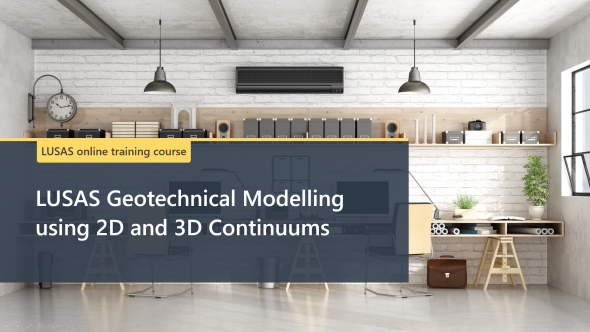
|
|
Immerse yourself in the intricacies of
geotechnical modelling with this course, where you'll learn
to:
- Develop 2D, 3D geotechnical models.
- Tackle deep excavation.
- Implement effective support
systems
- Conduct stability analyses.
- Model soil-structure interaction.
- Incorporate water effects in your
models, considering factors like dewatering, consolidation.
See typical
course content for each session.
|
Course Session Dates
| Course
name |
Session
dates |
No
of sessions |
Time
of each session |
Course
cost |
Booking |
| LUSAS
Geotechnical Modelling using 2D and 3D continuums |
13,
20, 27 November, 4 December 2025 |
4 |
14:00
- 16:00 GMT |
400
GBP |
Course
completed |
| LUSAS
Geotechnical Modelling using 2D and 3D continuums |
4,
11, 18, 25 June 2026 |
4 |
14:00
- 16:00 GMT |
400
GBP |
Not
yet available |
Bookings and payments
-
To book and pay for a single place on
a course click the 'Book now' button. If multiple bookings of
staff from the same organisation are required with payment to be
made via a single invoice, please
contact the training course administrator at training@lusas.com
-
Course costs include
handouts and are quoted in local
currencies and are exclusive of any local government taxes (if
applicable).
-
Please note that when paying by credit card the
amount charged in your currency may differ according to exchange rates and credit
card fees incurred, which are beyond our control.
-
For cancellations to attend a training course that are received in writing
at least 1 day prior to the first session taking place, the
course cost will be refunded.
-
LUSAS reserves the right
to reject bookings and
to cancel or re-schedule courses or individual sessions in the
unlikely event of this being required.
A discount is available for an
invoiced booking of 5 or more delegates from the same organisation.
Please contact your account manager or training@lusas.com
for details.
Online training information
| Sessions
presented using |
Session
length |
After
session offline self-study required |
Training
certificates |
| GoToWebinar |
90 to 120 minutes |
45
to 60 minutes |
Issued
on successful completion |
Notes
-
Training sessions
are provided using the GoToWebinar
web conferencing facility. You can join each training session up to 10 minutes before the scheduled start
time. They will start promptly.
-
Training sessions
are a mix of PowerPoint presentation and live demonstration
of LUSAS.
-
Delegates do
not undertake any hands-on examples during each session, but examples that cover the concepts introduced are provided for download and use by
delegates after each session. These examples will take between 45 and 60
minutes of offline self-study to complete. Email support is available from the
presenter to assist with these examples if needed.
-
Session
presentations can be downloaded from a training course event page
and printed off if required.
-
Delegates
are able to ask the presenter
questions during the training session via the chat tool or afterwards via email.
-
Sessions
are recorded and links to recordings will be provided to
delegates to allow viewing if a session is missed.
-
Training
certificates are provided to those who successfully complete the
series of worked examples and pass the quiz set after each
session.
-
Registration
for Session 1 is a requirement to attend all
subsequent sessions.
On successful completion
of the course, and with subsequent experience, delegates should be
able to successfully tackle many types of nonlinear analyses that
are encountered in mainstream structural and bridge engineering.
LUSAS software version
The latest version of LUSAS with a licence to run the geotechnical,
nonlinear and dynamics options will be used to
present this course. This configuration is also
required by those signing-up for the course to undertake any offline
homework examples.
For delegates without access
to a licence that supports this version and options, a
temporary licence will be provided.
Accessing LUSAS
Please note that the
latest release version of LUSAS will be used for the training
course. Individuals who wish to attend the
training who do not have access to the required version of the
software may request a
temporary training licence from LUSAS to allow the running of the
software on their personal computers. After
booking your place on the course, please
contact training@lusas.com
to request a licence stating your name and details as asked for on
the booking form.
Downloading LUSAS
LUSAS may be downloaded either as an
ISO file, or as a small startup executable. Use whichever is better or works for
you.
| Options
for downloading LUSAS Version 23
|
| ISO file
|
OR |
Web
installer
|
| Download a
single disk image file containing all installation
components.
Select this option for offline installation on one or more
PCs. |
Download a
small setup executable which allows you to choose those
components that you wish to download and install.
Select this option for online installation on a single PC.
|
|

|

|
Please contact training@lusas.com
if you have any questions relating to the licence key sent to you.
Typical Course Content
Session 1 - Getting
Started with LUSAS
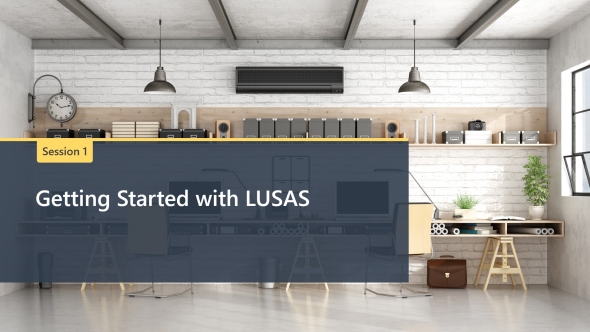 Overview
of LUSAS and basic skills in model building and results processing. Overview
of LUSAS and basic skills in model building and results processing.
-
Presentation on fundamental
LUSAS features and facilities.
-
Demonstration of LUSAS using
basic geotechnical models.
-
Presentation example:
Soil-structure interaction (bridge case).
-
Homework example to
be completed by delegates (same as presentation example)
-
Online quiz to complete the session.
|
Session 2 -
Geotechnical Modelling - Part 1
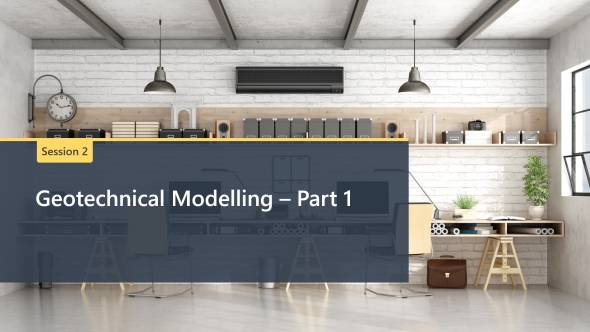 Building on the basic knowledge gained, this session guides you into geotechnical modeling, providing details on models and related functionality. Building on the basic knowledge gained, this session guides you into geotechnical modeling, providing details on models and related functionality.
-
Exploration of geotechnical models, including initial stresses, bearing capacity, pore pressure, drained and undrained
materials.
-
Presentation example: Embankment construction on
clayey soil.
-
Homework example to
be completed by delegates (same as presentation example)
-
Online quiz to complete the
session.
|
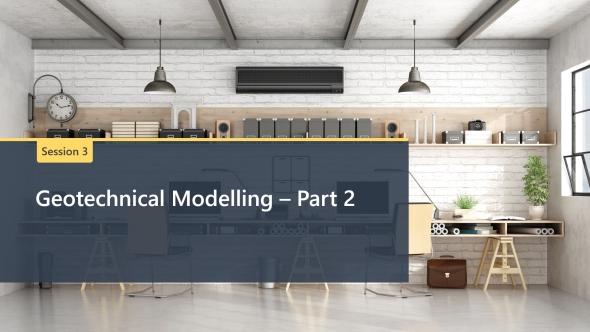 Session 3 –
Geotechnical Modelling - Part 2 Session 3 –
Geotechnical Modelling - Part 2
Elaboration on more advanced topics in geotechnical engineering and how to consider them in LUSAS.
-
Learn how to perform excavation, install support systems, add interfaces to structural elements, include a phreatic surface, conduct dewatering, and perform stability analysis.
-
Presentation example: Deep Excavation.
-
Homework example to
be completed by delegates (same as presentation example).
-
Online quiz to complete the
session.
|
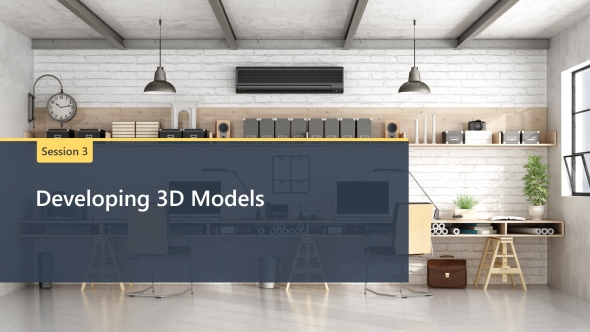 Session 4 –
Developing 3D Models Session 4 –
Developing 3D Models
Learn how to efficiently create 3D
models.
-
Specifics about 3D model
geometry and meshing.
-
Presentation examples: Two 3D
model examples, Pile load test and soil-structure interaction.
-
Homework example to be completed
by delegates.
-
Online quiz to complete the session.
|
|